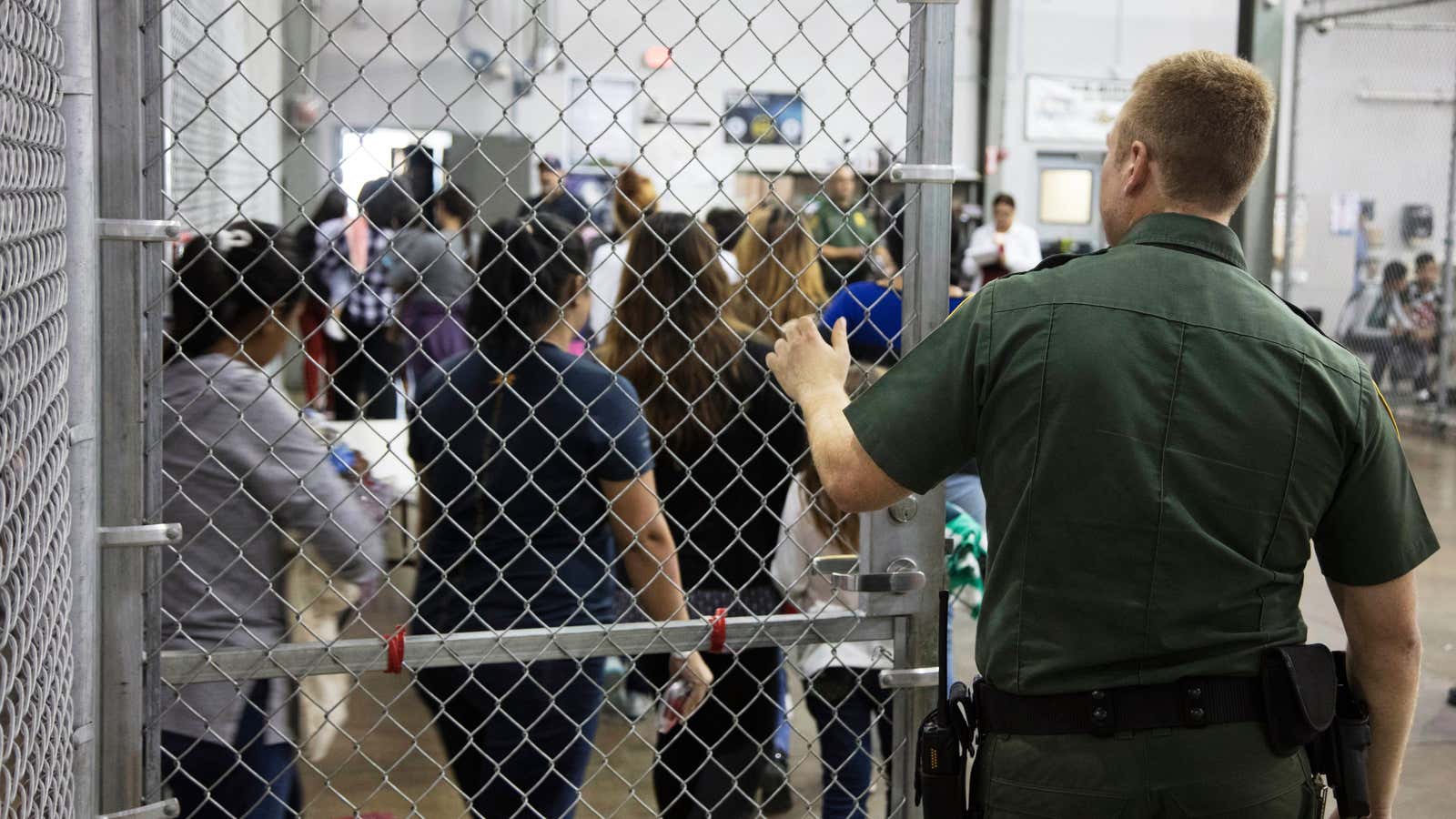As furor grows in the United States over a new “zero tolerance” policy of prosecuting all illegal immigrants and separating them from their children, immigrant detention camps are under close scrutiny. Photos issued by the US government have revealed rows of cage-like steel-wire enclosures for the removed children, drawing comparisons to concentration camps.
The government says outrage over its actions is misplaced. In a press briefing yesterday, Kirstjen Nielsen said that the children ”are being well taken care of.” She added, “The Department of Health and Human Services Office of Refugee Resettlement provides meals, medical care, and educational services to these children. They are provided temporary shelter.”
Conservative commentators have also pushed back on criticism, with Fox news host Laura Ingraham describing detention centers as “essentially summer camps.”
On Ingraham’s show, US attorney general Jeff Sessions joked about the difference between Nazi Germany’s internment camps and those on the US-Mexico border.
Of course, Session’s joke is worth a correction: Nazi camps were not merely designed to keep Jews from leaving the country; they were a tool of genocide. But beyond that, the historical term “concentration camp” is much broader than the German model.
What is a concentration camp?
“When people hear the phrase ‘concentration camps,'”Andrea Pitzer, the author of One Long Night: A Global History of Concentration Camps, tells Quartz, “they think of Nazi death camps, particularly Auschwitz, because the horrors unleashed during the Nazis’ genocide surpassed human imagining in the annals of atrocity. That period so starkly redefined what a camp was that the earlier versions have been forgotten.”
But the world, she said, had a 40-year history of concentration camps prior to the Nazi regime. Those earlier camps actually set the stage for German death camps by promoting “the idea that extrajudicial detention could be done humanely.”
Concentration camps, she adds, aren’t necessarily violent. Historically, they were “a place for mass detention of civilians without trial, usually on the basis of race, religion, ethnicity, citizenship, or political affiliation.”
The term “concentration camp” originates in Cuba, where hundreds of thousands of Cubans were held in Spanish “reconcentration camps” from 1896 and 1898. Shortly after, concentration camps for civilians were set up by the British in South Africa, during the Second Boer War (1900-1902).
The US has also detained civilians without charges before: Japanese-American children and adults were forced into internment camps during World War II. Then, as now, “there was no attempt to kill or physically injure the children during their time in the camps,” says Pitzer.
Today’s US detention centers, she says, fit the original concept of a concentration camp: Children are being detained not because they are guilty of a crime, but as a strategy to terrify immigrant parents considering crossing the US-Mexico border illegally. (“It could be a tough deterrent—would be a tough deterrent. A much faster turnaround on asylum seekers, ” White House chief of staff John Kelly told NPR in May.)
But by detaining children, the US is flirting with more serious abuses down the road, says Pitzer. “It was those earlier versions that set the stage for the brutal models that followed,” she says. “So in addition to the harm that we as a country are choosing to inflict on the most vulnerable children we can reach, we are institutionalizing dangerous practices that typically serve as the basis and legal authority for much worse camps later.”
Quartz reached out to the Office of Refugee Resettlement for comment but did not receive a response.
